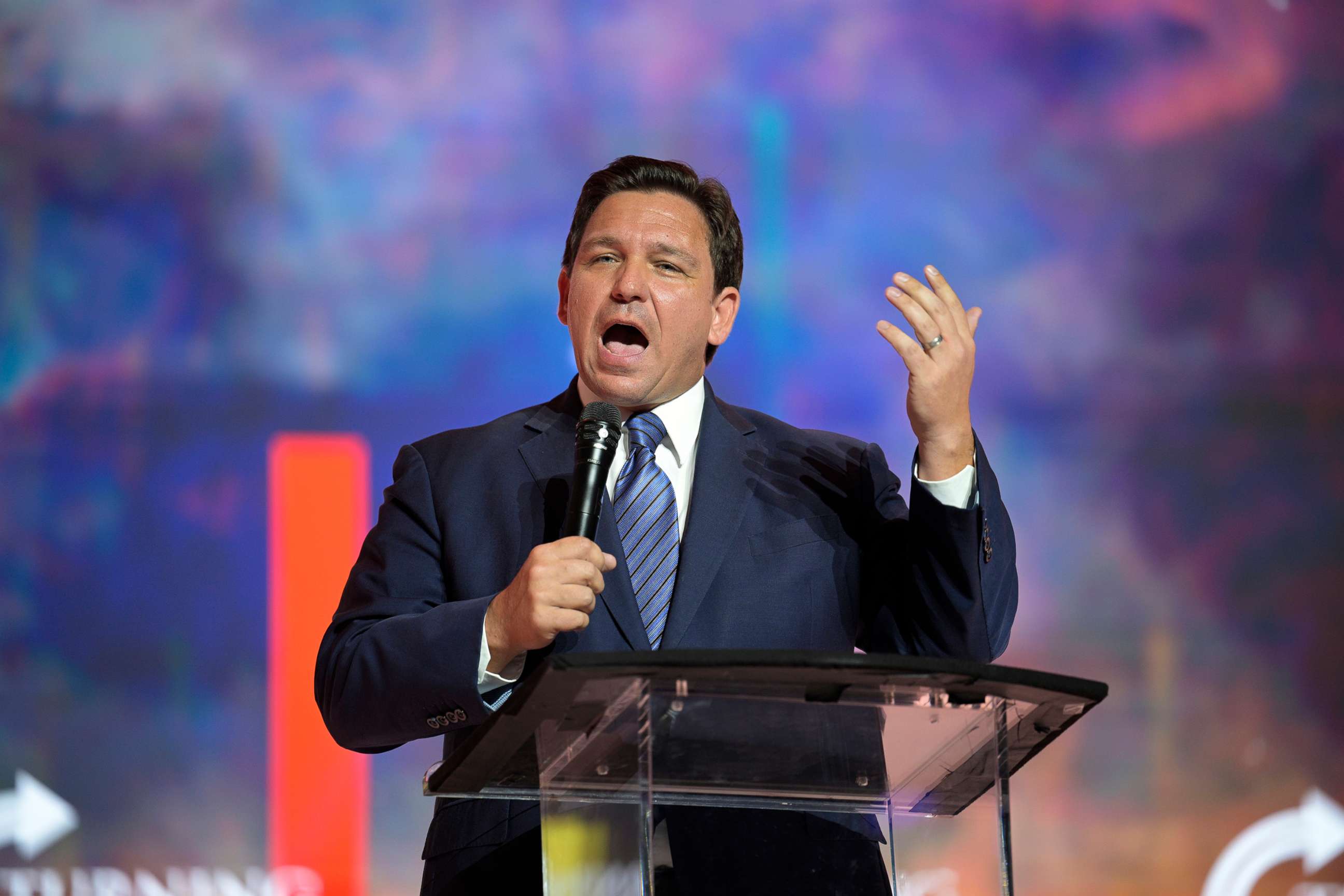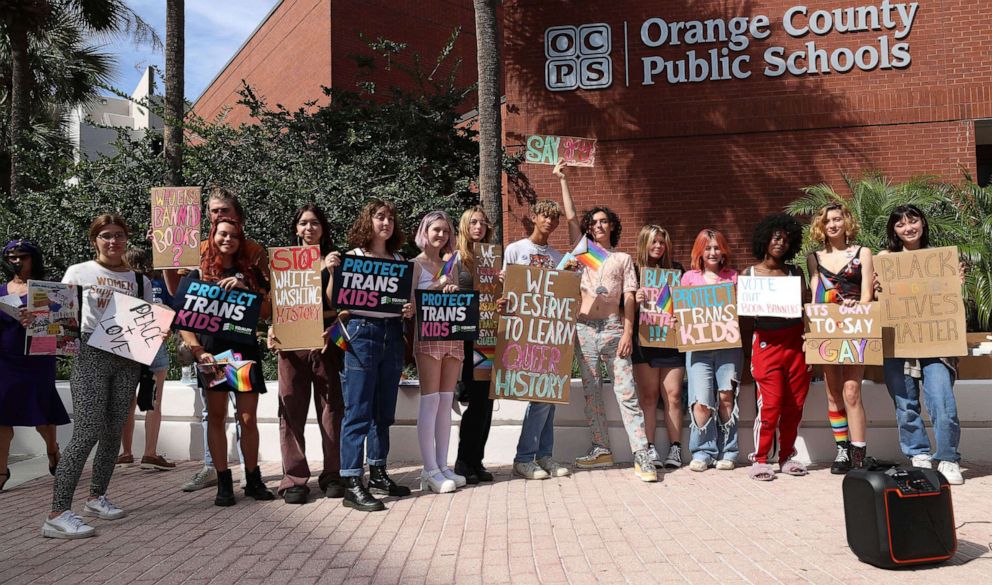Florida battles federal LGBTQ protections
Gov. Ron DeSantis is leading the charge.
As the federal government aims at expanding protections for LGBTQ people, Florida Gov. Ron DeSantis and state agencies are vowing to dodge those safeguards.
In a memo from the Florida education department on Thursday, the agency told state schools to ignore nondiscrimination guidance from the U.S. Department of Education and Department of Agriculture.
"Nothing in these guidance documents requires you to give biological males who identify as female access to female bathrooms, locker rooms, or dorms ... or to allow biological males who identify as female to compete on female sports teams," according to The Associated Press' reporting on the memo.
"To the extent that you do any of these things, you jeopardize the safety and wellbeing of Florida students and risk violating Florida law," the memo said.

The federal guidance stated that schools cannot discriminate on the basis of sexual orientation and gender identity under Title IX, as the definition of "sex" includes such categories.
Several federal agencies have issued similar guidance.
DeSantis' office expressed its support in the education department's memo in a statement to ABC News.
"The governor's office fully supports the Florida Department of Education in its position on these proposed rule changes and stands with Commissioner Diaz in refusing to allow the federal government and the Florida Commissioner of Agriculture to hold vulnerable students hostage to their political agenda," said the governor's office.
The news comes as Florida's Agency for Healthcare Administration proposed a ban on Medicaid coverage for puberty blockers, hormones, sex reassignment surgeries, and "any other procedures that alter primary or secondary sexual characteristics."
The AHCA is debating whether gender-affirming care falls under the "Generally Accepted Professional Medical Standards" for trans Medicaid recipients.
Simultaneously, the state's health department has asked the Florida Board of Medicine to restrict transition-related care for transgender minors, a letter obtained by NBC News read.
The federal government is trying to fight such restrictions. The U.S. Department of Health and Human Services recently proposed a rule that prohibits discrimination on the basis of race, color, national origin, sex, age, and disability in certain health programs and activities.
Health experts and activists applauded the move, as it includes protections for LGBTQ identities.
"What we're seeing happening in the states right now is an attempt to codify discriminatory attitudes towards LGBTQ people, particularly transgender people, in state law," Kellan Baker, the executive director of the LGBTQ health advocacy group Whitman-Walker Institute, told ABC News.
"There's nothing unusual about health care for transgender people. They all came from procedures, interventions, medications, and services that had been provided to cisgender people for a long time," he added.

Research has shown that gender-affirming care can be life-saving for transgender people, and will improve the physical and mental health of those who receive it.
These ongoing battles come amid a growing list of instances in which DeSantis continues to spark debate against LGBTQ identities. Just a few weeks earlier, the Parental Rights in Education law, dubbed the "Don't Say Gay" law, went into effect.
It bans classroom instruction on "sexual orientation or gender identity may not occur in kindergarten through grade 3 or in a manner that is not age-appropriate or developmentally appropriate for students in accordance with state standards," according to the law's language.
DeSantis and supporters of the law say it will give families more input in what their children are learning in schools and that children should not be learning about gender identity and sexual orientation at a young age.
Critics of the law said they believe it would set back the progress made by the LGBTQ community in the last few decades, and make children feel as though LGBTQ identities should be silenced or not spoken about. They say topics involving gender identity and sexual orientation are not inherently sexual, inappropriate or shameful.
More than 6 in 10 Americans oppose legislation that would prohibit classroom lessons about sexual orientation or gender identity in elementary school, a recent ABC News/Ipsos poll found.
Instances of vandalism and threats against gay bars, drag shows and drag queen story hours continue to be reported, with activists blaming anti-LGBTQ legislation and political rhetoric.




